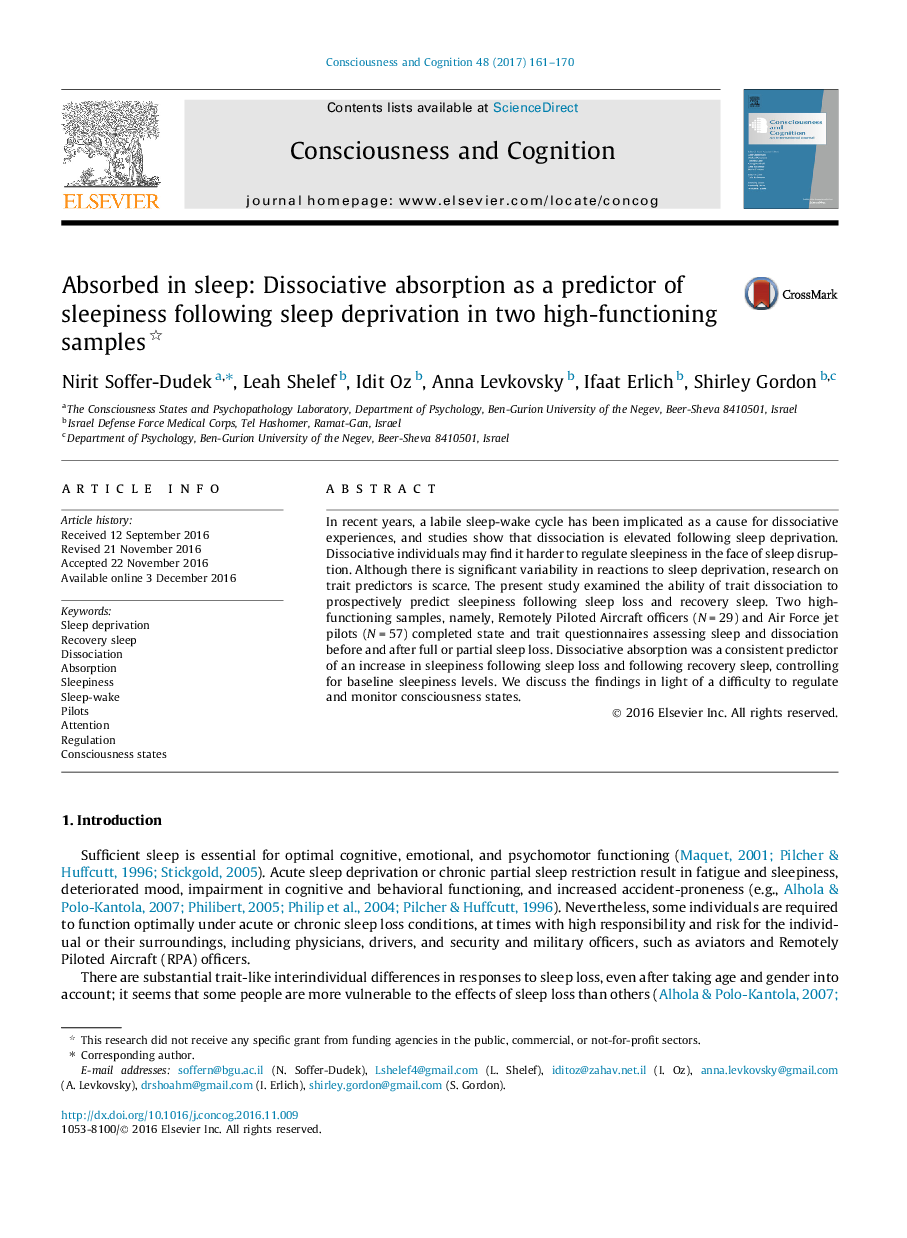| Article ID | Journal | Published Year | Pages | File Type |
|---|---|---|---|---|
| 5041902 | Consciousness and Cognition | 2017 | 10 Pages |
â¢Dissociation increases following sleep loss and is viewed as sleep within waking.â¢The present study aimed to assess if it may predict sleepiness following sleep loss.â¢Two high-functioning samples underwent sleep loss and recovery sleep procedures.â¢Dissociative absorption predicted increases in sleepiness that remained at recovery.â¢Absorption seems to represent difficulty in regulating consciousness states.
In recent years, a labile sleep-wake cycle has been implicated as a cause for dissociative experiences, and studies show that dissociation is elevated following sleep deprivation. Dissociative individuals may find it harder to regulate sleepiness in the face of sleep disruption. Although there is significant variability in reactions to sleep deprivation, research on trait predictors is scarce. The present study examined the ability of trait dissociation to prospectively predict sleepiness following sleep loss and recovery sleep. Two high-functioning samples, namely, Remotely Piloted Aircraft officers (NÂ =Â 29) and Air Force jet pilots (NÂ =Â 57) completed state and trait questionnaires assessing sleep and dissociation before and after full or partial sleep loss. Dissociative absorption was a consistent predictor of an increase in sleepiness following sleep loss and following recovery sleep, controlling for baseline sleepiness levels. We discuss the findings in light of a difficulty to regulate and monitor consciousness states.
